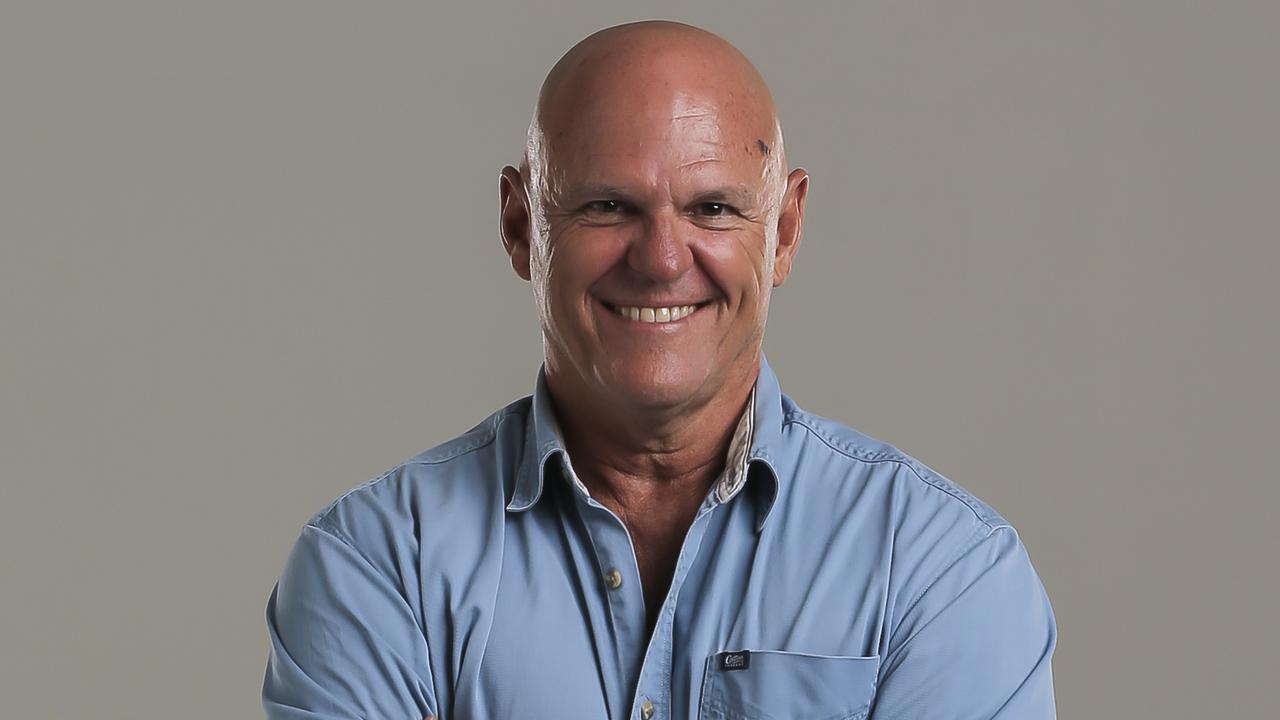Australia would pay heavy price in US-China ‘cold war’
TENSIONS between the US and China have stepped up a notch after China was accused of attempting regime change in the US. And while it might seem like this has nothing to do with Australia, the fallout could see us pay a heavy price, writes Dennis Atkins.
Opinion
Don't miss out on the headlines from Opinion. Followed categories will be added to My News.
THE confirmation process of now Supreme Court Justice Brett Kavanaugh, the looming midterm elections and Hurricane Michael barrelling through Florida obscured what could end up being the most important news development of the year in the US.
Earlier this month, Vice President Mike Pence gave a speech to the conservative Hudson Institute where he accused China of attempting regime change in the US.
“China wants a different American president,” he said.
“Beijing has mobilised covert actors, front groups and propaganda outlets to shift Americans’ perception of Chinese policies.
“As a senior career member of our intelligence community recently told me, what the Russians are doing pales in comparison to what China is doing across this country.”

The rest of Pence’s speech was belligerent and confrontational, in the same tenor as President Donald Trump’s recent United Nations address but without any diplomatic niceties.
What Pence is saying is that China must be countered and met with equal force and strategies at every turn.
The US wants to confront Beijing’s global economic and strategic aggression, demand a crackdown on any internal dissent and pressure the Chinese to change their behaviour.
AUSTRALIA, JAPAN URGE BETTER US-CHINA TIES
Interestingly, Pence directly criticised Chinese oppression of the Uyghur and Tibetan people.
This speech comes after Trump leapfrogged Russia and made China the number one cyber threat to the US and the current election cycle.
Also in the background here is the heavy duty, tit-for-tat trade war in which combined tariffs on either side of the Pacific are edging towards the one trillion dollar mark.
The Chinese see three aims behind the recent attacks by Trump and Pence.
According to Chinese insiders, the Americans want to build momentum for the midterm elections by targeting China to win over voters; the Trump administration is unduly anxious about China, which is why the trade brawl it instigated has yielded what Beijing calls “modest effects”; and Pence wants to broadcast his allegiance to the President.
All these hypotheses are debatable, but we should not understate what is happening in this new cold war between the US and China.
When Secretary of State Mike Pompeo visited Beijing this week after talks with North Korea’s Kim Jong-un, he was asked for a “please explain” before being sent on his way with an “unhappy Jan” message for the President.
The president of Chinese e-commerce giant Alibaba, Jack Ma, said this week any economic or financial battle between the US and China — such as the current trade war — would see America lose big time and suffer much more.

Alibaba’s executive vice-chairman, Joseph Tsai, told a South China Morning Post conference in Kuala Lumpur the US trade war was evolving into a global geopolitical struggle or new cold war.
“I think what the US is doing is a reaction to an unfounded fear that China’s rise is somehow going to threaten the national security and well-being of the American people,” he said. “We are so integrated that the pain is going to be felt all over the world. Everybody is going to feel the pain.”
Tsai and other cooler heads point out that right now the Chinese and US economies are actually interlinked, and breaking the commercial and financial nexus would prompt an immediate crisis.
All of this bluster and trade chest-beating has been going on while the temperature has been turned up in the South China Sea with some US flights over the disputed islands the Chinese are turning into reclaimed island Air Force carriers.
There might not be a great chance yet of military engagement, but relations between Washington and Beijing are at their lowest point since Mao Zedong left power.
Apart from Trump’s often inexplicable fascination with North Korea’s Kim Jong-un and his punishing of China on a weekly basis, he seemingly doesn’t care much about South-East Asia.
Trump has dropped this region from his summit season round, not going to APEC in Papua New Guinea or the ASEAN and East Asia summits later this year. He hasn’t even appointed an ambassador to Australia just under two years after he won the 2016 elections.
If the US does bring down a cold war on the world through a confrontation with China, we will, as Alibaba’s Tsai said, all pay a heavy price.
Australia is in a worse position than any other major economy, with the exception of Japan, if this kind of scenario plays out. China is an enormously important trading partner and the US is our key strategic alliance partner — here a sneeze leads to pneumonia very quickly.
Scott Morrison has his first face-to-face meeting with Trump at the G20 in Argentina at the end of next month. He should have a word about the perils of taking on China.
Dennis Atkins is The Courier-Mail’s national affairs editor.
dennis.atkins@news.com.au


